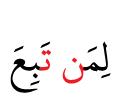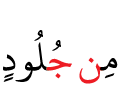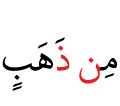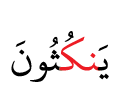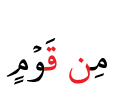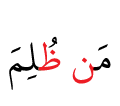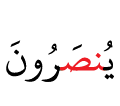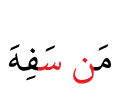Rules of Noon Sakinah and Tanween
When reading the Quran, sometimes letters change the way they sound depending on what comes after them. These changes make reading smoother and more beautiful. There are four important rules for the letters Noon Sakinah and Tanween. These rules help us pronounce the words correctly and with Tajweed.
Before we learn these rules, let’s understand some new words that will help us:
Noon Sakinah: The letter Noon with a Sukoon or without any Haraka.
Ghunnah: A nasal sound that comes from the nose, like a “humming” sound. Ghunnah is produced as the air streams through the nasal cavity during the pronunciation of the voice of Meem ( م ) or Noon ( ن ). Pinch your nose and try saying words that start with ‘m’ or ‘n’. You will feel your nose vibrate if you hold that letter.
Ghunnah duration: The ghunnah sound has an average duration of two Harakat similar to the time it takes to say one-two.
Iqlab
Iqlab: Iqlab means to convert something into another.
If the letter Baa ( ب ) comes after Noon Sakinah ( ن ) or Tanween the “noon sound” will be changed into Meem ( م ) and we make a Ghunnah. Simply convert the Noon sound into a Meem sound, and pronounce the letter “Baa” afterwards.
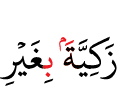
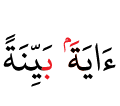
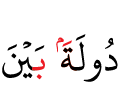
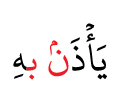
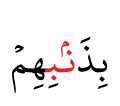
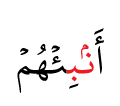
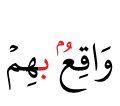
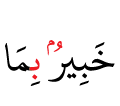
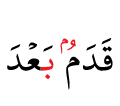
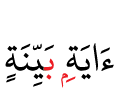
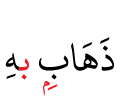
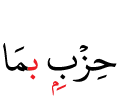
Idgham
Idgham without Ghunnah
Idgham: Idgham means to merge the sounds of two letters, or to join one sound into another.
If the letter Laam ( ل ), or Raa ( ر ) comes after Noon Sakinah or Tanween, then we don’t pronounce the noon sound.
When we apply this rule we don’t make the Ghunnah sound.
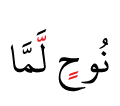

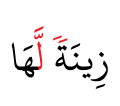



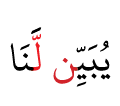


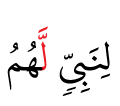
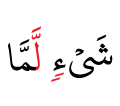
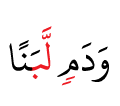
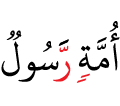



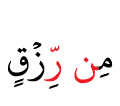
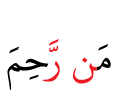
Idgham with Ghunnah
If any of the following letters, Yaa ( ى ), Meem ( م ), Waaw ( و ) and Noon ( نۡ ) comes after Noon Sakinah or Tanween, we don’t pronounce the Noon sound, and we pronounce the following letter and lengthen them for one second with Ghunnah.
Just imitate the examples below and focus on the red-colored spots while doing it.
The Idghaam with Ghunnah letters are easily remembered by the word “Yanmu / ينمو “.
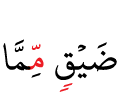
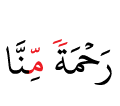
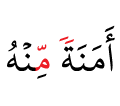
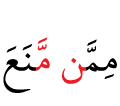
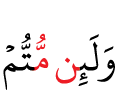

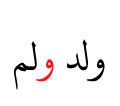




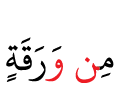
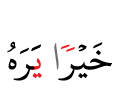
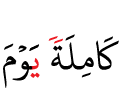
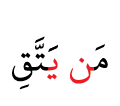


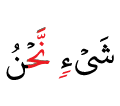
Izhar
Izhar: Izhar means clarification or reciting clearly.
If any of the following six throat letters comes after Noon Sakinah or Tanween, then read clearly (no sound change) without Ghunnah.
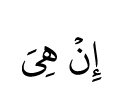
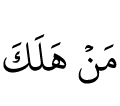
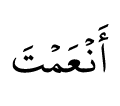
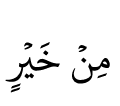
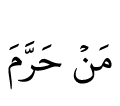
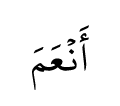
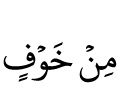
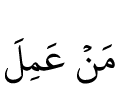
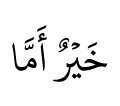
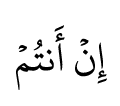
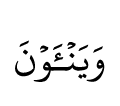
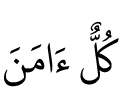
Ikhfa
Ikhfa: Ikhfa means hiding.
If any of the following letters comes after Noon Sakinah or Tanween, then the Noon Sakinah or Tanween will be pronounced with a very light sound (slightly hide the /n/ sound) from the Nose and with Ghunnah.
